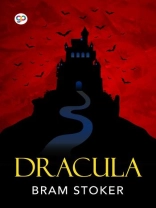A popular bestseller in Victorian England, Stoker’s hypnotic tale of the bloodthirsty Count Dracula, whose nocturnal atrocities are symbolic of an evil ages old yet forever new, endures as the quintessential story of suspense and horror. Its supernatural appeal has spawned a host of film and stage adaptations, and more than a century after its initial publication, it continues to hold readers spellbound.
When young English lawyer Jonathan Harker arrives in Transylvania on the eve of Saint George’s Day, he cannot shake a strange feeling of uneasiness. Dogs howl throughout the night, villagers speak fearfully of evil omens, and the air grows colder as he arrives at his destination: the castle of Count Dracula.
Jonathan has been summoned by the count for business, and while he finds his new host obliging and polite, he can’t help but notice the man’s pallid skin, odd lack of appetite, and long daytime absences. Puzzled, the young solicitor begins to search the castle for clues, and unearths a deadly secret that could endanger him and those he loves most.
Bram Stoker
Dracula [EPUB ebook]
Dracula [EPUB ebook]
Acquista questo ebook e ricevine 1 in più GRATIS!
Lingua Inglese ● Formato EPUB ● Pagine 240 ● ISBN 9789388118835 ● Dimensione 0.6 MB ● Casa editrice GENERAL PRESS ● Pubblicato 2018 ● Edizione 1 ● Scaricabile 24 mesi ● Moneta EUR ● ID 6728408 ● Protezione dalla copia Adobe DRM
Richiede un lettore di ebook compatibile con DRM












